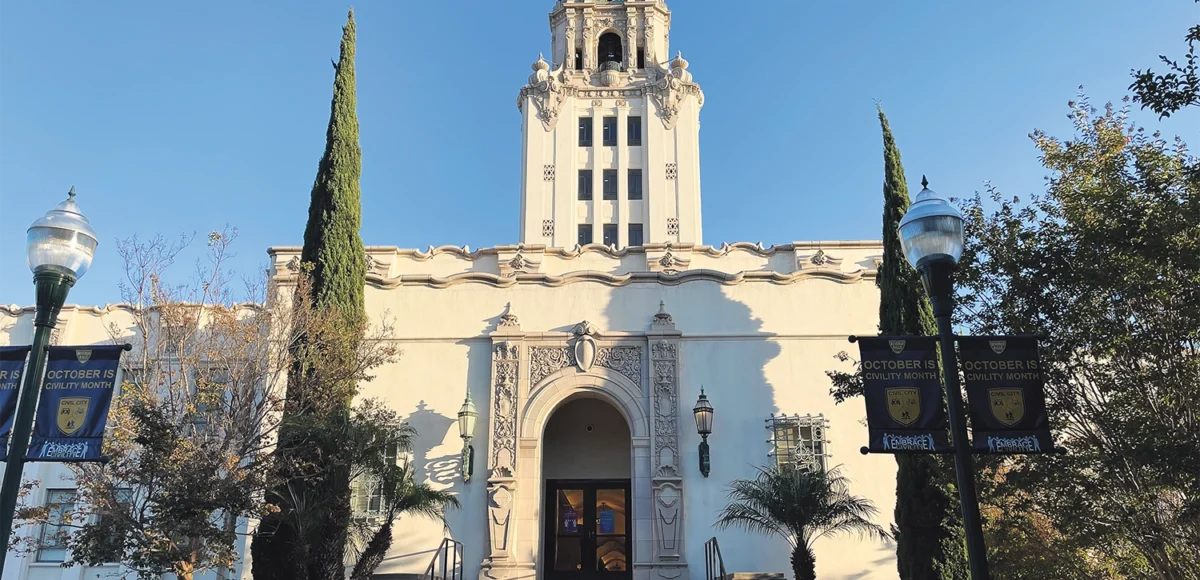Members of the City Council discussed a range of matters at their Dec. 10 Study Session. Discussions included changes to the Community Assistance Grant Funding (CAGF) program alongside a list of strategic priorities for the year ahead.
The city’s CAGF program aims to provide needed social services to members of the community. The program was initially created decades ago, and so may require updating to allocate funds more efficiently and better reflect the needs of society at present. In late 2023, a report was presented to the Council Social Services Ad Hoc Committee looking at the role the CAGF program plays in delivering social services. Accordingly, the Study Session discussion built on these recommendations to propose further changes.
Vice Mayor Sharona Nazarian and Councilmember John Mirisch recommended a CAGF hiatus over the fiscal year 2025-26, which the committee agreed to. As a result, 12 of the current CAGF partners will be placed on a contractual and funding hiatus for the upcoming year. Seven of the current CAGF partners will be transitioned to “as-needed, not-to-exceed” community service provider contracts for approximately $1.7 million. In addition, $100,000 of the CAGF budget will be reallocated to the Community Services Department for cultural service providers. This is expected to result in anticipated savings of $395,000 for the city’s budget in the year to come.
The committee also reviewed a revised list of priorities for the fiscal year 2025-26. The top priority area concerned matters relating to the safety and health of the Beverly Hills community. Councilmembers discussed preparations for the opening of the upcoming Metro stations, such as establishing a Public Safety Center at the La Cienega Metro station alongside hiring and training additional BHPD sworn staff for this station. Plans were also laid out to develop a security model for the future Beverly station.
The implementation of new technologies to support public safety was another strategic priority set for the upcoming year. Such technologies include cloud migration and upgrades for the Beverly Hills Police and Fire Departments’ records management systems, enhanced drone coverage and AI-based digital forensic software such as automated license plate readers or video searching tools.
Mirisch highlighted the need for equal CCTV camera coverage throughout the city as part of the enhanced safety plans. He stated, “There are parts of town, like in the southeast, where there are no cameras, and the residents there are concerned.” Councilmember Craig Corman suggested that the work plan item on expanding CCTV cameras could be amended to say, “Continue to expand number of closed-circuit TVs equally throughout the city.” Ultimately, Mayor Lester Friedman concluded that quality is more important than quantity when it comes to camera placement and that camera locations should be decided on an objective basis, taking into account crime and accident data collected by the police department.
Some initiatives were raised for discussion but postponed for determination at a later date, such as the Recreation and Parks Commission’s plans for the construction of a new shade structure for the dog park. Councilmembers also discussed conducting a comprehensive class and compensation study, as the last one was done in 2012. The City Council was generally supportive of this, but decided to have staff bring it forward as a budget enhancement request for further consideration in the future.
The key priorities around housing saw the council emphasize the importance of maintaining certification of the city’s housing element. The Virgin Records building on Foothill Road served as a divisive issue—the building is deteriorating and requires significant work to be maintained should the city decide to keep it as is. The next steps regarding this matter were marked as a priority to be discussed further.
Councilmembers agreed to consider environmental stewardship as a strategic priority for 2025, with the Climate Action and Adaptation Plan (CAP) currently under evaluation by the council. Also under evaluation is the implementation of the Complete Streets Plan. This plan includes projects such as crosswalks at the six-way intersection, Le Doux Road and Wilshire Boulevard and on Coldwater Canyon as well as mid-block crossings at La Cienega Park and La Cienega Boulevard north of Wilshire between Wilshire and Clifton Way.
Alongside changes to the CAGF program and priority setting, councilmembers also discussed using the retrofitted space in City Hall for additional purposes, emphasizing the importance of efficient use of resources. Vanity Fair’s request for street closures and fee waivers for their Academy Awards dinner in March 2025 proved a hotly debated topic, with a suggestion for a $30,000 donation that could be used as a contribution to the Oct. 7 Memorial Fund. The Council also considered Dick Clark Productions’ fee waiver request for the Golden Globes, clarifying that it covers permit fees and not personnel costs. The City Council agreed to the waiver, noting the additional benefits such as red-carpet access.







